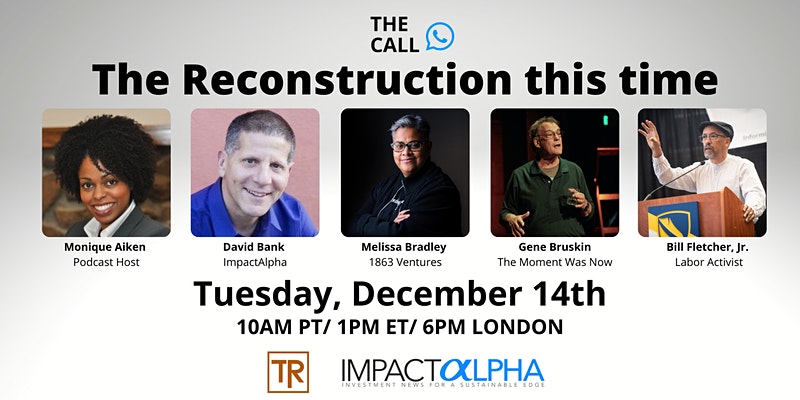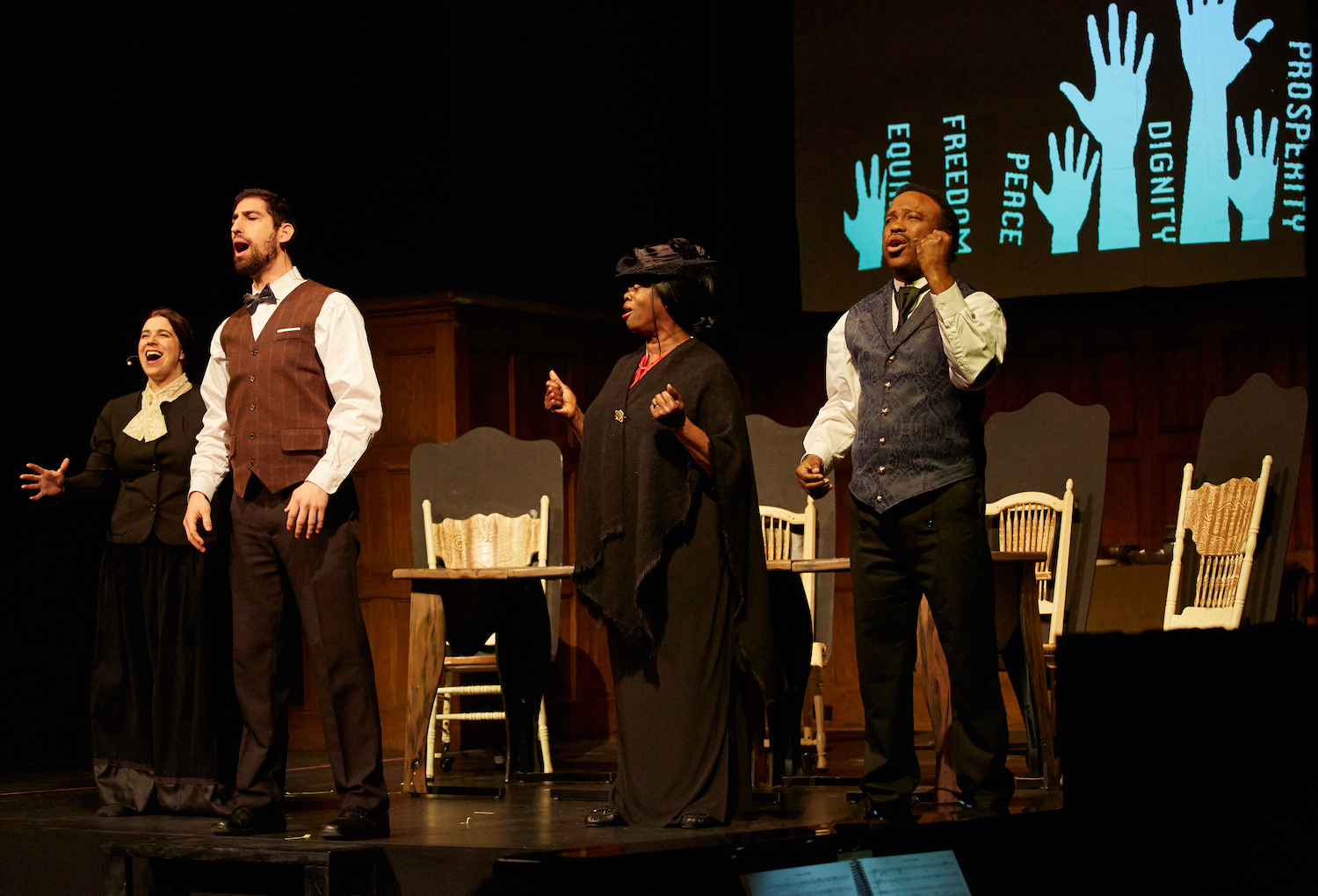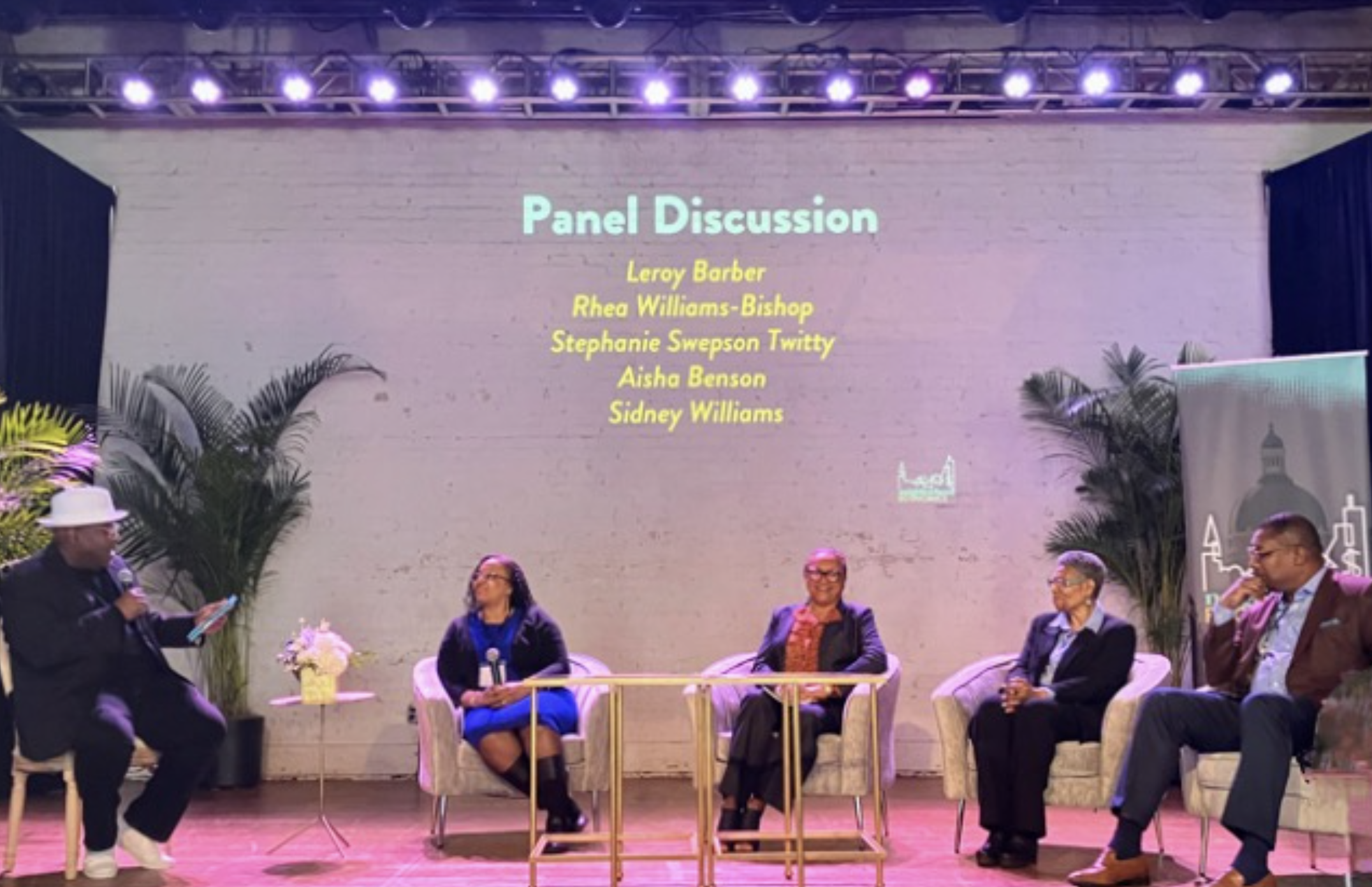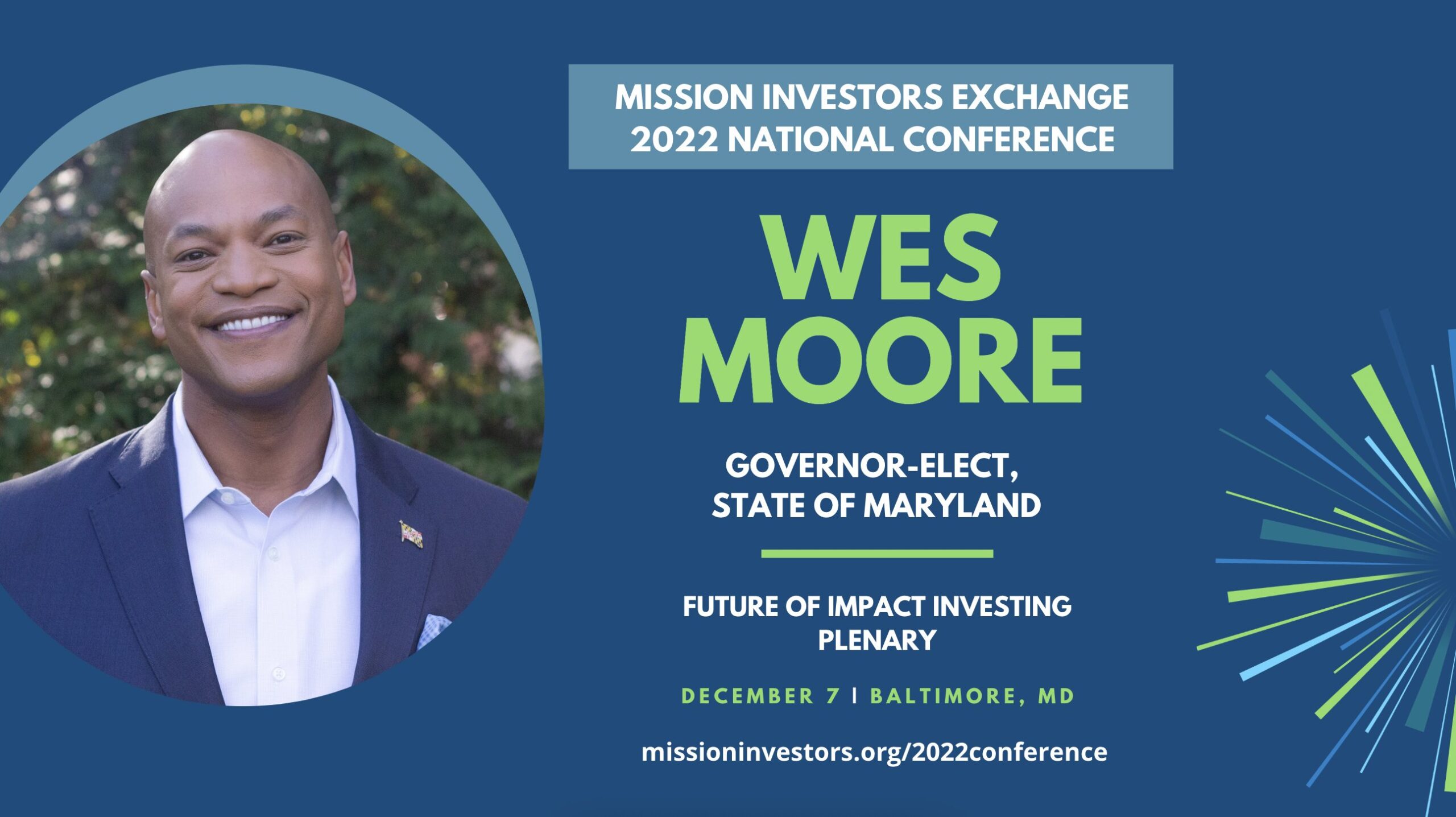That the past is never dead – it’s not even past, as Faulkner observed – was hard to dispute last month in the courtroom in Charlottesville, Va., where organizers of the 2017 Unite the Right rally were found liable for $26 million in damages under state laws.
The federal conspiracy charges in the case were brought under the Ku Klux Klan Act of 1871, signed by President Ulysses S. Grant to protect newly freed citizens from racist vigilantes intent on undermining the just-ratified 14th and 15th amendments to the U.S. Constitution. Exactly 150 years old, the jury deadlocked on the federal charges.
The ongoing sesquicentennial of the historical Reconstruction provides ample opportunities to plumb the present-day relevance of the pivotal period after the Civil War when, as playwright Gene Bruskin says, “American almost did the right thing.”
To advance that conversation, ImpactAlpha is pleased to present an abridged video version of Bruskin’s musical, “The Moment Was Now” for viewing in advance of Agents of Impact Call No. 36: The Reconstruction this time, Tuesday Dec. 14 at 10am PT / 1pm ET (RSVP today).
On The Call, Bruskin and his collaborator, Bill Fletcher Jr, former president of TransAfrica Forum, will join 1863 Ventures’ Melissa Bradley and Monique Aiken, host of The Reconstruction podcast series to talk about intersecting themes of race, gender and class that are as urgent today as they were 150 years ago.
“Reconstruction was a moment when it all was under consideration and everything was possible,” Bruskin told Aiken in one of the series’ early podcasts. “It didn’t fail, it was destroyed.”
“How do we not have another play, written decades in the future, about how we missed this moment now?”
New narrative
For decades, the story of the Reconstruction era, replete with denunciations of “carpetbaggers and scalawags,” was distorted by the perspectives of its opponents. Even supporters mostly remember the white supremacist backlash that ushered in decades of Jim Crow.
That opposition and the backlash was in large part a result not of the failures of Reconstruction, but of its success. The decade-long experiment in multiracial democracy and inclusive prosperity spurred small-town vitality and the flourishing of Black businesses and professionals across the South that persisted, for example, through the violent coup in Wilmington, N.C. in 1898 and the destruction of “Black Wall Street” in Tulsa, Okla. in 1921.
The revision, started with W.E.B. DuBois’ magisterial Black Reconstruction and carried forward by historian Eric Foner and others, has restored more honest appraisals of the remarkable economic and political agency of newly free Black citizens.
“Changing a regime based on slavery to one based on racial equality, that was a pretty big job to do,” Foner says. “The tragedy of Reconstruction is that the commitment to enforce it waned much too soon.”
The Moment Was Now, a musical in the style of “Hamilton,” reimagines the early years of the Reconstruction era, when the rules and power relationships of America’s political and economic systems were in creative flux. The play is set in 1869 Baltimore on the eve of a historic labor convention.
The play imagines a dramatic encounter between abolitionist author and orator Frederick Douglass, who brings together Black and white labor leaders (Isaac Myers and William Sylvis) and Black and white advocates for women’s suffrage (Frances Ellen Watkins Harper and Susan B. Anthony) to grapple with the intersecting challenges of race, class, gender and the industrial revolution, as represented by the robber baron Jay Gould.
Labor lens
The story of labor organizing across racial lines resonated with Bruskin, who returned to musical theater after he retired from 37 years as a union organizer for the AFL-CIO, the United Food and Commercial Workers Union, the American Federation of Teachers, as well as Jesse Jackson’s PUSH campaign and other unions and movements. He directed the successful Justice@Smithfield campaign for the United Food and Commercial Workers that unionized 5,000 slaughterhouse workers in North Carolina.
As the play shows, Sylvis, the head of the National Labor Union and the primary labor leader among white workers, understood the need for multiracial unity and brought to the 1869 meeting the pioneering Black labor leader, Isaac Myers, who established the Colored National Labor Union. Myers’ speech was reported in The New York Times.
In “The Moment Was Now,” Frederick Douglass urges his allies “To act before it’s too late // to create a plan for massive foment // in this moment. // For moments come and moments pass // but moments don’t last forever. // We cannot freeze them // we must seize them.”
Together with ImpactAlpha, Bruskin is exploring opportunities to license and adapt the play, its characters and the historical context for television, film or theatrical production.












